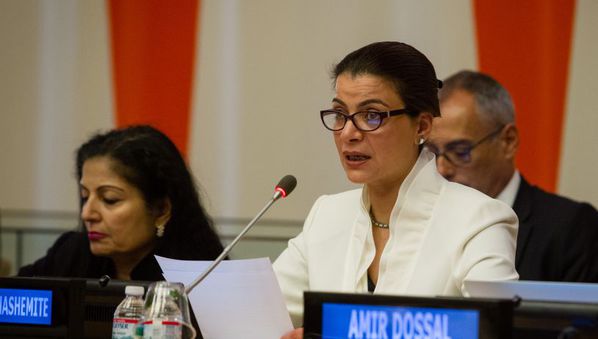Although many women in the Middle East graduate in scientific, technological and medical fields, they are unlikely to pursue research careers. Why is this?
The number of female graduates from scientific colleges and universities in Middle Eastern and North African countries is higher than the number of men but women don’t have the opportunities to pursue their dreams, their intelligence and their vision. If you talk about Arab countries, the number of girls going into science is higher but their employment options are limited.
“Girls are less likely to pursue scientific research careers without role models, and we need to encourage them.”
Nisreen El-Hashemite
In Western countries, women hit a glass ceiling and have unequal pay. Whereas in Middle Eastern countries, the problems are less related to gender inequality and more related to the lack of opportunities to pursue scientific research [in the first place]. Governments and policymakers in many of these countries only make it possible for science graduates to continue as teachers and not as scientists because they don’t have science policies and institutes.
In Lebanon for example, there are a lot of universities but there isn’t scientific research. It is similar across much of the Middle East and North Africa, although there are some exceptions, such as Tunisia — which has wonderful scientific research — Turkey and Iran, [the latter] despite the constraints of sanctions.
How are differences between men and women relevant to the content of research itself, for example on health?
The idea for the first International Day of Women and Girls in Science came out of a Women’s health and development forum held at the United Nations in New York in February 2015. Reproductive health is very important but there are so many other issues related to women’s health because of biological differences between the sexes. If you look at the medications for heart conditions for example, they are mainly tested on males rather than males and females and this has implications for dosage because women are biologically different to men.
Women do not receive the same recognition as men at the highest levels of scientific research. How does this affect younger women interested in pursuing careers in these areas?
There are so many great women achievers, but the number of female Nobel Prize winners is so small you can count them, and when women in science do win they [often receive joint awards] with their male counterparts. This is why RASIT created the first international award for women in science. We named the award after Fatima El-Fehria, a woman who donated all of her inheritance more than 1,200 years ago to build the first university in the world in the city of Fes, Morocco. Girls are less likely to pursue scientific research careers without role models, and we need to encourage them.
Q&As are edited for length and clarity.
